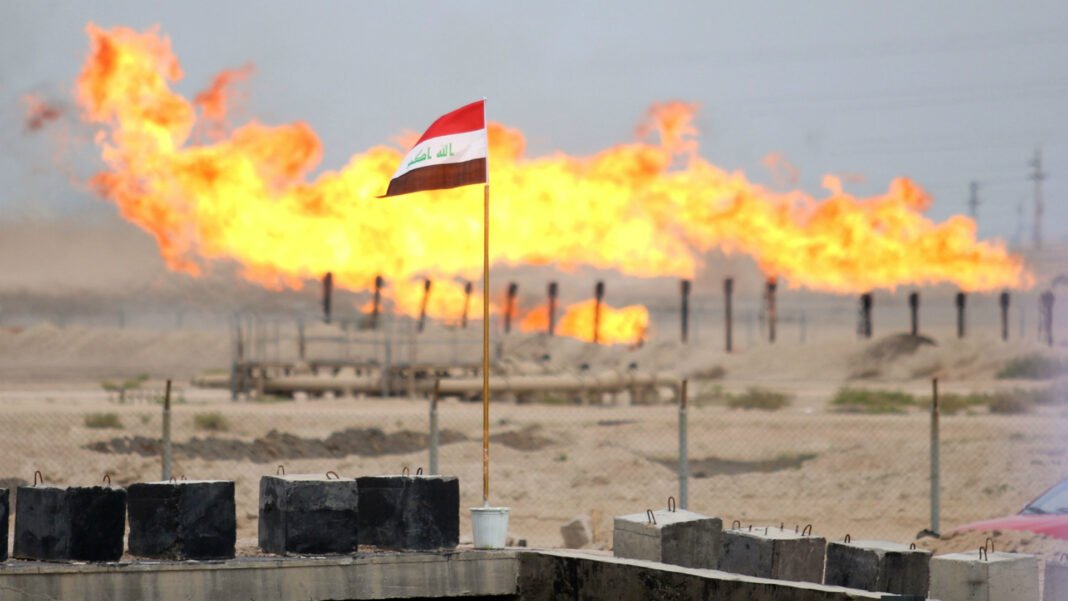Iraq faces a serious growing in financial challenge as oil revenues fail to cover the government’s monthly expenses. The economic observatory ECO Iraq revealed that current oil income cannot meet the country’s spending needs. The warning comes as analysts expect Brent crude prices to fall near $60 per barrel before the year ends.
Iraq oil revenues that faces growing remain the main source of national income, but they no longer sustain rising government costs. Monthly spending now stands at around 11 trillion dinars, most of which funds salaries, pensions, and subsidies. However, current oil sales bring in less than 10 trillion dinars, creating a sharp imbalance. Non-oil income contributes under 2 trillion dinars, widening the fiscal gap even more.
According to ECO Iraq, global oil production continues to increase, especially from the United States. This higher output, combined with strong global supply and easing regional tensions, keeps oil prices under pressure. Iraq, as OPEC+’s second-largest producer, feels the direct impact of these shifts.
Economists urge Iraq to accelerate economic diversification. Heavy dependence on oil exposes the country to financial risks whenever prices drop. Iraq’s economy needs new income sources such as industry, agriculture, and renewable energy. Diversification could help protect public finances and create sustainable growth.
Although Iraq approved a record budget of more than 210 trillion dinars, the deficit remains high. Reports show that by midyear, the government had already accumulated a deficit of over 12 trillion dinars. Projections for next year indicate a shortfall of around 64 trillion dinars, raising concerns about fiscal stability.
The decline in Iraq’s oil revenues forces the government to rethink spending priorities. Officials must balance social programs with investment in key sectors. Moreover, economic reforms could help improve tax collection and boost private sector growth.
Iraq’s financial outlook depends heavily on how quickly it adapts to lower oil prices. Without structural reforms, falling oil revenues may continue to threaten stability and development. The government’s next steps will decide whether Iraq can overcome its fiscal challenges and build a stronger, more balanced economy.
Meta description: Iraq oil revenues fall short of government spending as crude prices drop, increasing the budget deficit and highlighting the need for economic reform.


